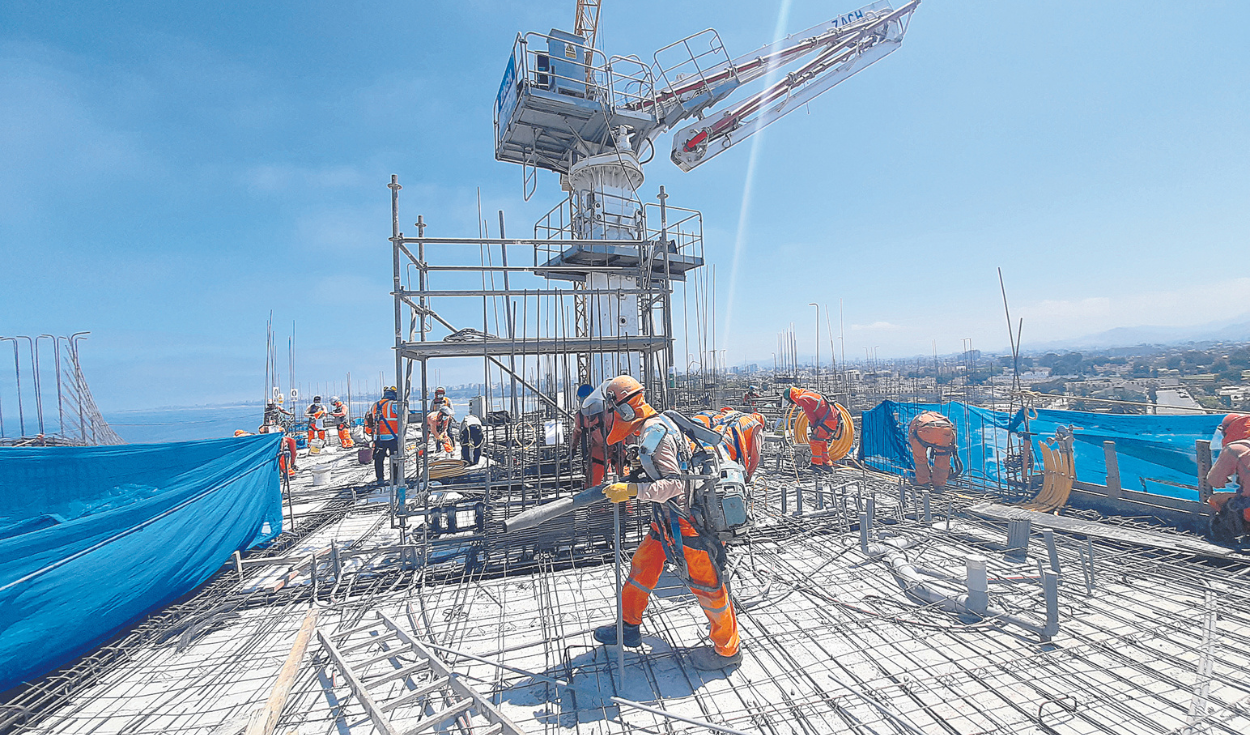
Seven real estate projects and more than fifty in the preliminary project stage confront construction unions and the municipalities of San Isidro and San Borja, after the latter decided to bow to a recent ruling by the Constitutional Court (TC) that returns to them the jurisdiction of decide where a social interest home (VIS) is built, previously governed by the Ministry of Housing, Construction and Sanitation (MVCS).
The Association of Real Estate Companies of Peru (ASEI) considers that the decision is retroactive and violates the rule of law. What happened? DS 010-2018-HOUSING and its modifications of 2019 and 2020 empowered the MVCS to determine the zoning and heights of buildings for the development of the VIS at the national level, even when they did not have the approval of the councils.
Barranco and Munilima brought the case before the TC, which finally ruled in their favor in May of this year. By September, the MVCS presented its new VIS regulations – which have not convinced the mayors either -, which included part of the ruling. The problem is that, between 2018 and 2023, multiple projects were hatched under the previous regulation that today are subject to sanction or suspension “retroactively”, according to the unions.
For this reason, ASEI has brought San Isidro and San Borja before Indecopi to declare as bureaucratic barriers the ordinances that they issued in parallel to the meetings that they tried to conciliate in July.
“They have stopped real estate investment with files that have been approved even before the ruling of the TC,” says José Espantoso, president of ASEI.
Jorge Arévalo, general manager of Capeco, denounces that this recalcitrance reduces predictability in the sector, and rejects that real estate developers have sought to take advantage of this window of state incentives to take over the top districts of Lima with oversized buildings.
“The controversy is in the programs that are perhaps in the highest rank [estratos sociales] of the Mivivienda Credit, but these are much broader. For example, Own roof It is the one that requires the most investments,” Arévalo emphasizes.
glass ceilings
The mayors do not think alike. Carlos Bruce, head of Surco and former Minister of Housing, points out that the problem began when real estate entrepreneurs began to build VIS in areas where land is so expensive that it is impossible to sell properties at a “social price.”
For the VIS to be profitable, he explains, it must be purchased land cheap, so as not to charge more than S/495,000 for a home. But if you build a building in Velasco Astete or Chacarilla, it is impossible for it to be VIS.
“They are disguising themselves to enjoy the greater heights with which the State rewards those who invest in VIS, compared to other projects that do not. No more regulations needed here.“but to rethink the program and visible leadership of Minister Hania Pérez de Cuéllar,” he asserts.
Marco Álvarez has a similar position. The mayor of San Borja anticipates a response sheet to ASEI’s accusations of retroactivity. Likewise, he denies that the mayors involved seek to settle private investment in their districts, but first comes the neighbor.
“It promotes an overlap of powers and tremendous legal instability: builders believe they have the right, but we tell them no. However, in no way are we going to allow 33-story buildings where only eight can fit, or 22 in areas for five,” he asserts.
MVCS and the denaturalization of VIS at the national level
More districts have joined in against the new VIS regulation. Miraflores has said that it will not comply: it has 57 of these licenses in the process of sanction.
A Capeco study reveals that 8 out of 10 apartment buyers in Lima prefer to move to districts close to their origin.
The urban planner Aldo Facho Dede emphasizes that it is the provincial municipalities that must determine the zoning limits, which means that both MVCS regulations would be wrong. However, he considers that signed contracts must be respected until before the TC ruling.
The word
José Espantoso, president of ASEI
“Private investment and the legitimate dream of many Peruvians of accessing housing are being paralyzed. “Many families who bought their homes on plans will be affected.”
Source: Larepublica
Alia is a professional author and journalist, working at 247 news agency. She writes on various topics from economy news to general interest pieces, providing readers with relevant and informative content. With years of experience, she brings a unique perspective and in-depth analysis to her work.












